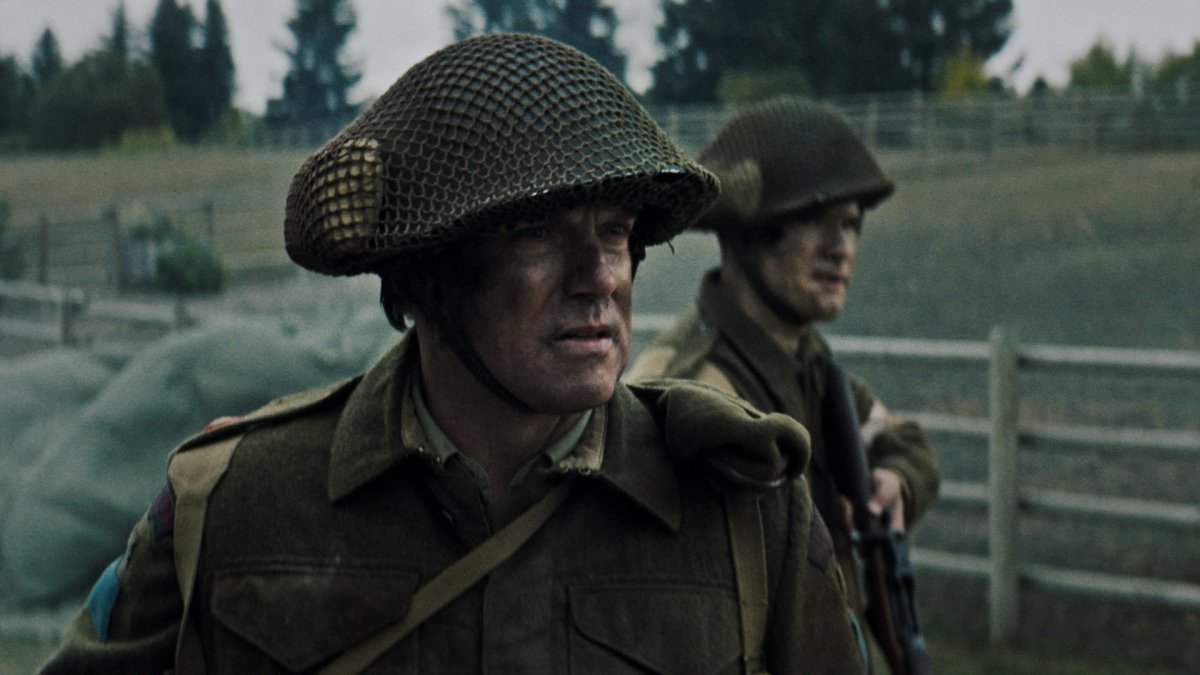Historica Canada is a non-profit organization dedicated to enhancing awareness of Canadian history. One of their “best-known offerings” is Heritage Minutes, a collection of more than 90 dramatized vignettes that recreate events of importance, accomplishment and bravery in Canada’s history.
The organization’s latest dramatized vignette tells the story of 47-year-old Maj. Archie MacNaughton, a First World War veteran and leader of the North Shore New Brunswick Regiment’s A Company.

“It’s about what we think of as the quiet heroism of the 14,000 Canadians who landed on Normandy in the biggest invasion in world history, all of them understanding that from the moment they landed on the beach, their lives were at risk,” said Anthony Wilson-Smith, president and CEO of Historica Canada.
“So we wanted to tell a story of someone who really exemplified that kind of quiet heroism and have it be a story that a lot of people didn’t know,” he added.
‘He had the opportunity to say no’
MacNaughton first signed up for the First World War when he was 19 years old, then at the age of 47, he returned to fight again. He died in Normandy, France, on D-Day.
He had a wife and children, and as a First World War veteran, he did not have to serve again.
“He was running a farm, and he had the opportunity to say no and not take part in the war, but he put his life and everything he had on the line fully understanding the consequences,” Wilson-Smith said.
The organization also felt that the North Shore Regiment, primarily from New Brunswick, was not as well known as it deserves, so highlighting their role in the fight was important.
READ MORE: NB veteran receives first $2 coin commemorating 75th anniversary of D-Day
“The story seems to be that some of the regiments from bigger Canadian cities, for example, The Queen’s Own Rifles from Toronto, they were from big cities that sent correspondents from the local newspapers over to war. So you go over to cover it,” said Wilson-Smith.
“New Brunswick being smaller and especially a lot of the North Shore Rifles Regiment, a lot of them coming from smaller towns, they didn’t have that. So they never got the immediate attention that the bigger ones did, so their role as a result, over time, they just became overlooked,” he added.
Finding the story
The organization spent months looking for a story “that would be very human in nature,” until they decided on MacNaughton.
Jen Sguigna is one of the organization’s consultants on the Heritage Minute and was critical in the organization’s decision to tell MacNaughton’s story.
“I’m kind of the holder of the story,” said Sguigna, who works for The Juno Beach Centre.
READ MORE: Finding Pte. Baker: Canadian historians solve 75-year-old mystery of D-Day soldier’s identity
The Centre is Canada’s Second World War museum and cultural centre located in Normandy, France. The Centre pays homage to the 45,000 Canadians who lost their lives during the War, of which 5,500 were killed during the Battle of Normandy and 359 on D-Day.
Sguigna works from Canada, but flew to France on Wednesday to be part of the 75th anniversary of D-Day.
“I first heard about Archie’s story in 2014 as part of a commemorative campaign that The Juno Beach Centre was doing, and in the years that followed, I had the opportunity to meet up with his family,” Sguigna said.
READ MORE: Uncovering D-Day: Canadians unearthing, preserving Hitler’s Atlantic Wall as reminder of war
She said her family sent her two giant boxes and three binders full of hundreds of letters that MacNaughton had written to his wife, son and daughter during the wars. They also sent his medals, which are now on display at the centre.
Sguigna said that in reading nearly all his letters, what stayed with her the most is his conflicting dedication between his family and to his duty. She said that’s what makes the story universally appealing and relatable.
“Every letter you read, he says to his wife and his children, ‘I wish I was there at the kitchen table with you, I wish I was tending to my sheep and how there must be lots of blueberries this year,’ and he’s trying so hard to be there with them,” she said.
Living in the aftermath of war
Wilson-Smith said that the effects of the battle in Normandy are still with us today in two ways.
“The first is that the world we live in is much different because we were on the side that won the war and made things better,” he said.
“The second thing is that there are families who lost husbands that day, children who grew up without their fathers and small communities that were never the same because the young men who would have built their tomorrow went off to war and never came home.”
He said life was changed for so many Canadians.
- Budget 2024 failed to spark ‘political reboot’ for Liberals, polling suggests
- Train goes up in flames while rolling through London, Ont. Here’s what we know
- Peel police chief met Sri Lankan officer a court says ‘participated’ in torture
- Wrong remains sent to ‘exhausted’ Canadian family after death on Cuba vacation






Comments